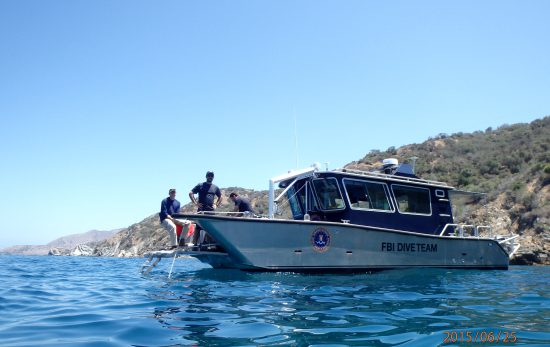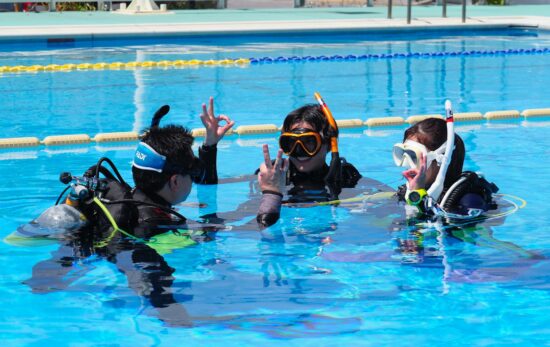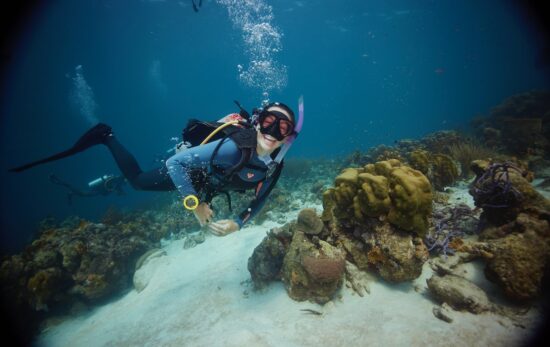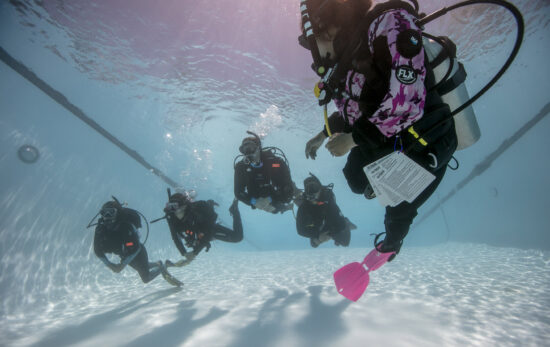Every diver was once a beginner. Some take to diving naturally, but most of us have to keep working at polishing our basic scuba diving skills. The Divemaster who floats effortlessly like a genie may have started out as a bicycle kicker, and the instructor who blows beautiful bubble rings may have struggled to learn regulator recovery.
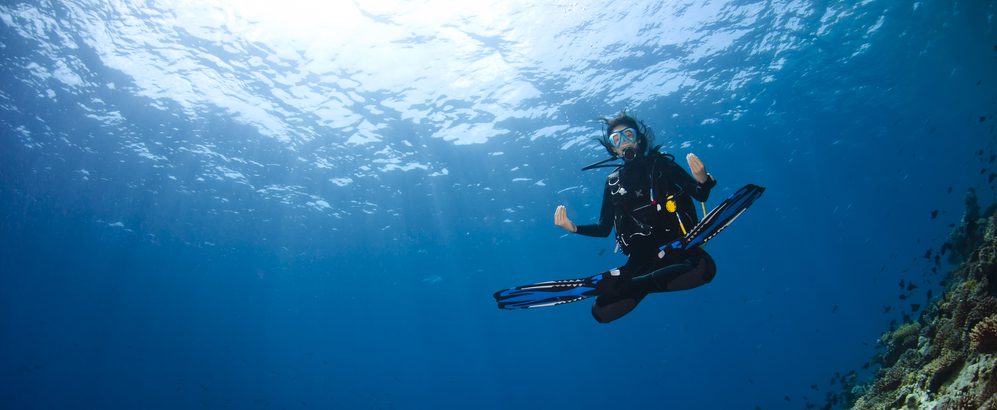
That said, there are a few things divers do underwater that silently scream “I’m new at this!” While there’s nothing wrong with being a new diver, there are a few beginner bad habits divers can try to avoid. Here are a few tips for new scuba divers and any diver who doesn’t want to look inexperienced.
Overusing the power inflator.
New divers are often overly-dependent on the low pressure inflator and dump valves to move up and down in the water. As my instructor told me many times, “your BCD is not an elevator.” With practice, experience and training, most divers learn to use their breath to move up and down in the water column. Experienced divers don’t use their BC frequently during a dive. You mainly see them venting small amounts of air as they ascend from depth.
Chasing after fish, turtles, and other sea creatures.
You don’t have to be a diver very long to realize even the tiniest fish can out-swim you. Unfortunately, when some new divers spot a turtle or other interesting creature, they swim directly towards it – scaring the animal away. Typically, the best marine life encounters occur when divers remain as still and calm as possible.
Diving beyond the limits of their training and experience.
Certain types of diving (wreck, deep, and cavern to name a few) require special training, and for good reason. You learn a lot during the Open Water Diver course®, but you don’t learn everything. As a new diver, don’t feel obligated to prove yourself to others.
– If you don’t feel comfortable going into a swim through or a cut out in a wreck, swim over the top. Experienced divers will respect your choice and you won’t be the one responsible for mucking up the viz.
– If you struggle with buoyancy or other skills, don’t compound the problem by trying to take underwater photos or video.
– Enroll in the PADI Advanced Open Water Diver course which, despite its name, is all about gaining confidence and experience in your diving skills. There are no tests, and significantly less bookwork than the open water class. You can try different types of diving such as photography or dry suit diving and work to perfect your basic scuba skills such as navigation and buoyancy.
Not asking for help.
Moving around with 22kg/50lbs of dive gear on uneven ground or a rocking boat isn’t easy. Diving is a buddy sport. Ask for help!
Also, some divers find it easier to put their gear on in the water when boat diving. Jump in with your mask, fins and snorkel, then ask the crew to pass down your gear. It’s not an uncommon request, and something many experienced divers wish they’d tried sooner.
Arm swimming and bicycle kicking.
Alas, humans weren’t born with pectoral fins. Those arms of yours may be useful for swimming in a pool, but they’re not much use underwater. Arm swimming, bicycle kicking and plowing through the water at a 45 degree angle (aka the seahorse position) are signature new diver moves. In one weekend, the PADI Peak Performance Buoyancy Specialty course can help divers achieve a streamlined swimming position, extend their dive time and often reduce the amount of weight they use.
Touching or holding on to things.
Whether accidentally or on purpose, new divers have a tendency to touch the reef. Look but don’t touch is one of the golden rules of diving, it not only protects the diver from scrapes and injuries, it preserves the underwater environment.
Air hog/trying to see the entire ocean in one day.
Improving your breathing gas consumption takes time and practice, but new divers can easily enjoy longer dives by simply slowing down. Many enthusiastic beginners make the mistake of trying to see the entire ocean in one dive. There are many advantages to slowing down and appreciating the underwater world around you, not the least of which is a longer, more relaxing dive.
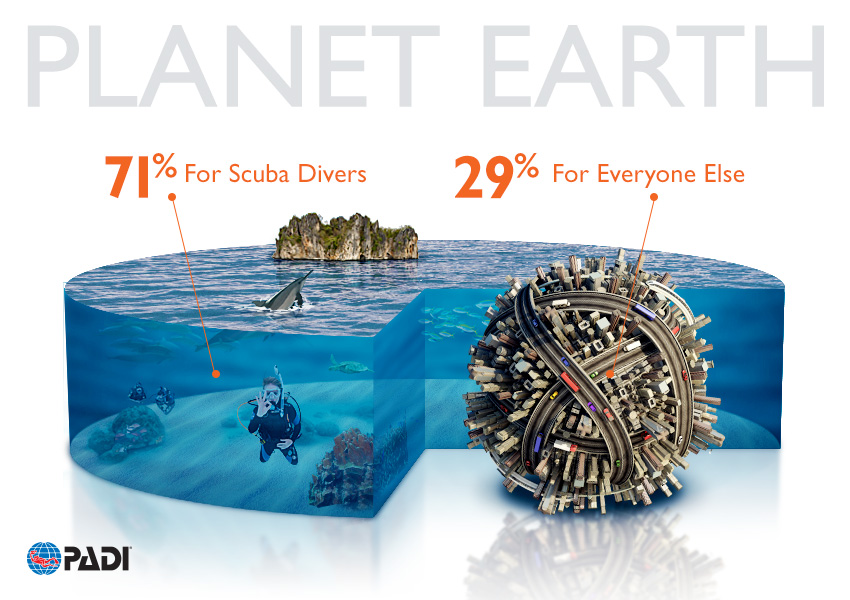
Poorly-fitting gear/unfamiliar with gear.
Ill-fitting gear or unfamiliarity with dive gear is another “tell” that someone is a new diver. There’s nothing wrong with using rental gear, but it’s important to know how your equipment works, whether it’s your personal gear or rental. Not knowing how to use the dive computer, oversized gear and fumbling with the BC are a few hassles many experienced divers overcome by acquiring a personal set of scuba equipment over time and taking the one-day PADI Equipment Specialist course.
Here are some Tips for Buying Your First Set of Scuba Gear from our friends at Scuba Diving magazine. Author’s personal tip: giant dive knives are for n00bs.
The buddy check.
Just because an experienced diver wants to take a chance on safety doesn’t mean you should too. Not to mention, it can be fun to learn how different people remember BWRAF.
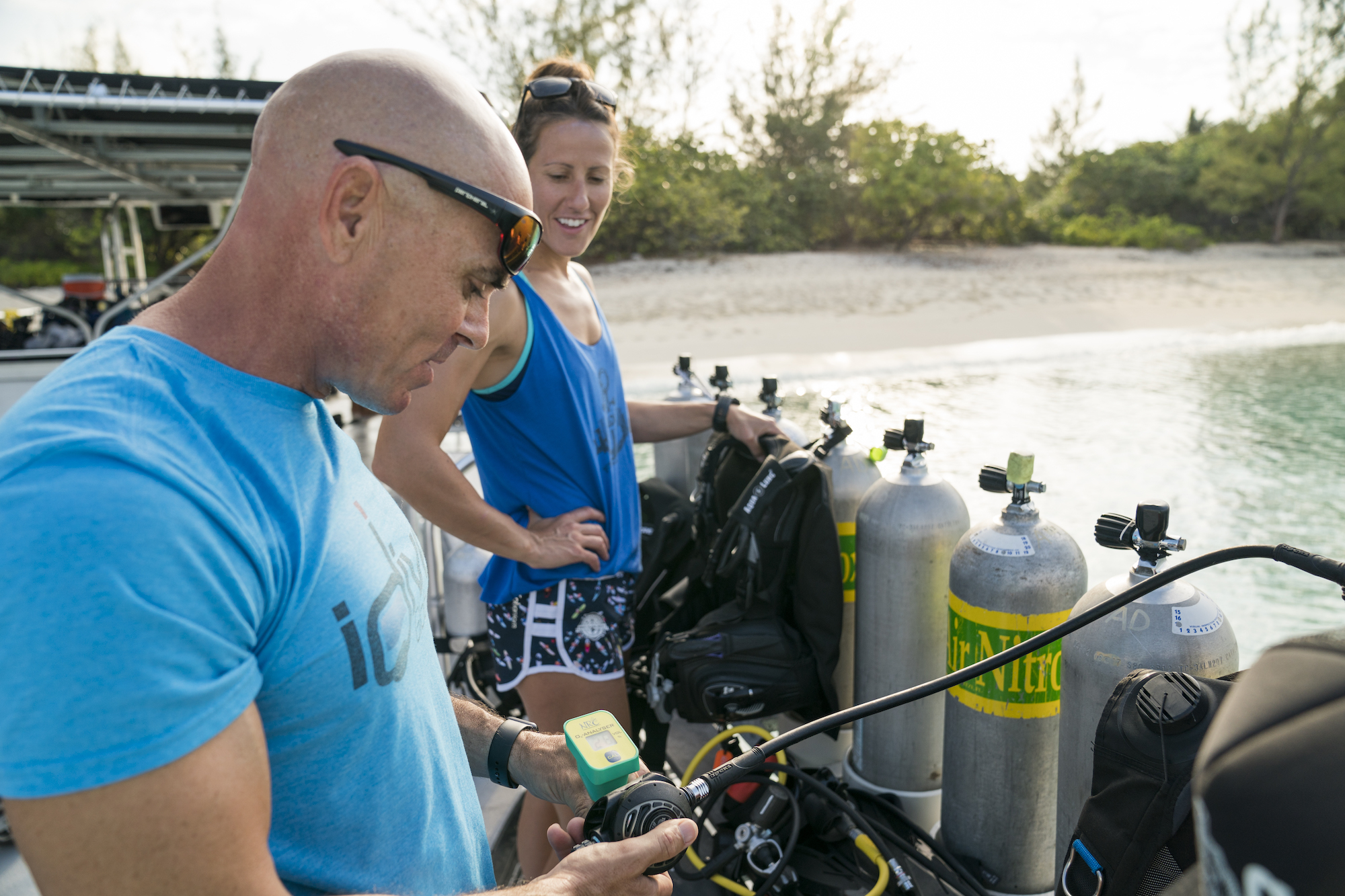
Why we love new divers.
Don’t let the list above make you think divers are mean and judgmental. We’re just super-passionate about the underwater world and want everyone to enjoy it responsibly.
Compared to other sports, divers are exceedingly friendly and welcoming to newbies. Even crusty old salts get a kick out of hearing about someone’s first encounter with a turtle and are happy to share advice on scuba equipment and their favorite places to dive.
Further Reading
Advice to New Scuba Divers from a PADI Instructor Part I and Part II
The 5 Most Common Mistakes New Divers Make
Next Steps for Open Water Divers


